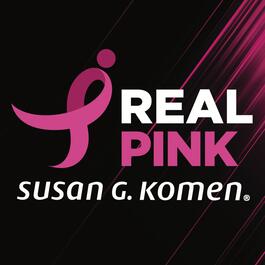
Real Pink
Real Pink, a podcast by Susan G. Komen, is taking real conversations about breast cancer from the doctor's office to your living room. Hosted by Adam Walker, episodes feature candid conversations with survivors, researchers, physicians, and more. Find answers to your toughest questions and clear, actionable steps to live a better life, longer. At Real Pink, compassionate storytelling meets real inspiration and real support.
Show episodes
As we close out the year, we’re shining a light on the quiet, powerful work happening every day inside Komen’s Patient Care Center. In this special episode, we sit down with two of our remarkable patient navigators — Marcela Orozco and Ladoya Mayfield — to share the biggest impact stories of the year. From helping Span
We are thrilled to be joined by the co-founder of the Home Edit. She is an Emmy-nominated, NY Times best-selling author, a mom, a wife and a breast cancer survivor - the amazing Clea Shearer. Clea is here to talk about her shocking breast cancer diagnosis at the age of 40, the ongoing reconstruction complications that
Children can be one of life’s greatest blessings. Breast cancer survivors Alex Miles-Stiffler and Sara Galher-Barlow long for larger families but their diagnoses put those dreams farther and farther out of reach. Alex struggled to start a family before her diagnosis. The heart ache she felt after two miscarriages was u
Knowledge is power, and when it comes to breast cancer, having access to accurate, up-to-date information can make all the difference. That’s why Susan G. Komen is committed to providing trusted educational resources that empower patients, caregivers and families to make informed decisions about their care. Today we ar
Patient navigation has become one of the most powerful tools for improving breast cancer outcomes — and in Native American communities, it can be lifesaving. From long travel distances to specialty care, to navigating complex referral systems, to ensuring communication is culturally grounded and respectful, navigation
Breast cancer can be one of the toughest experiences anyone can face, but it can also be a transformative journey. While both the physical and emotional challenges are daunting, the path to healing offers a chance to rediscover resilience and joy in unexpected ways. Today, we are excited to welcome Aastha Saggar, a sta